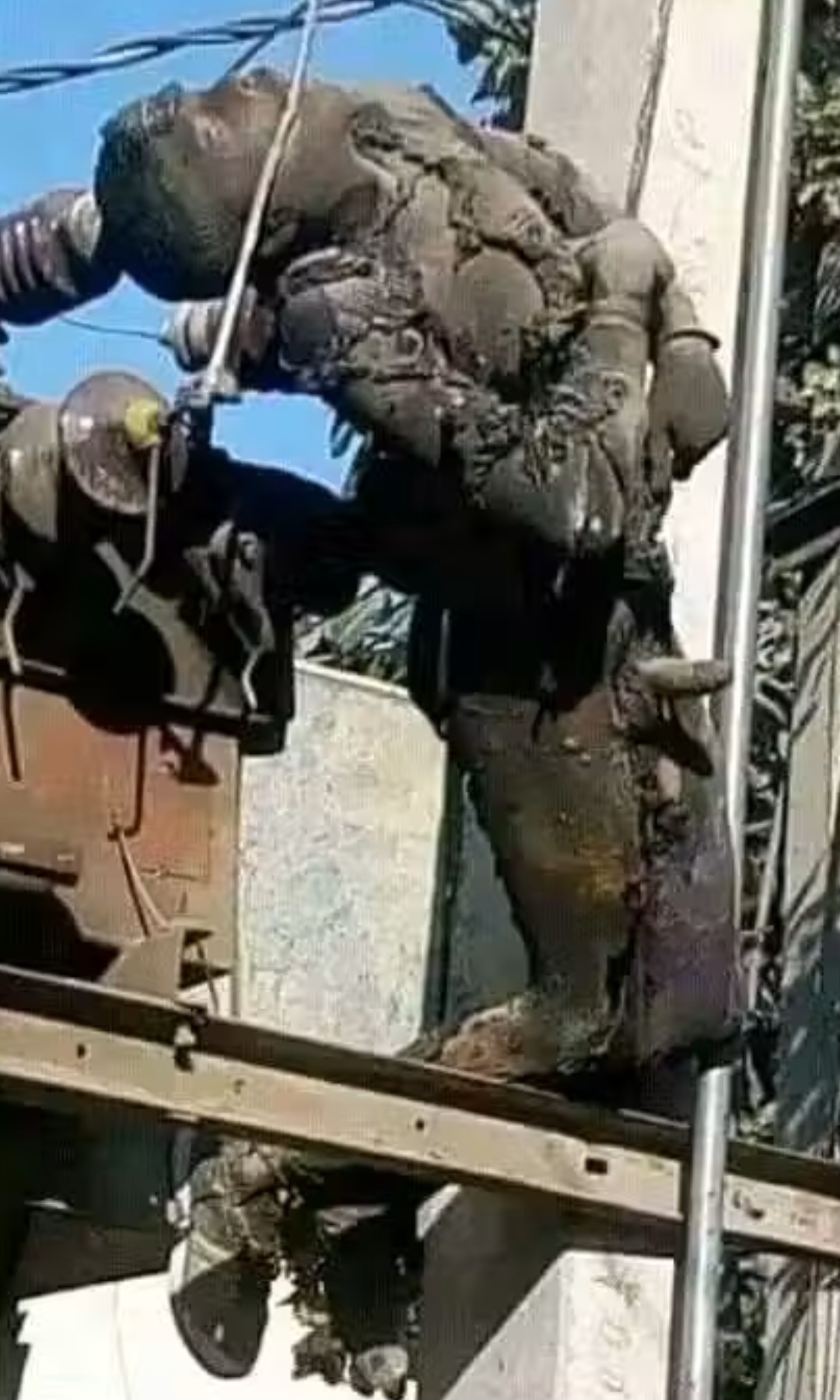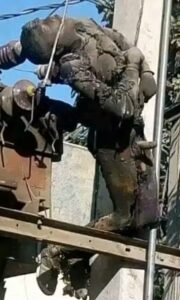
Mamelodi, Gauteng – June 2025
A tragic scene unfolded in Mamelodi after a man was found electrocuted while attempting to steal copper cables from a utility pole. His lifeless body was discovered hanging from the pole early in the morning by shocked community members, who immediately alerted emergency services and police.
According to eyewitnesses, it is believed the man climbed the pole in the early hours of the morning with the intention of cutting copper cables to sell on the black market. Unfortunately, he made contact with live high-voltage wires and was instantly killed by the powerful electric current. By the time authorities arrived, there was nothing that could be done to save him.
This heartbreaking incident has once again drawn attention to the increasing cases of copper cable theft in South Africa—a crime driven by poverty, unemployment, and the lure of quick cash. The risks associated with stealing live electrical cables are deadly, yet many desperate individuals still attempt it.
Copper Cable Theft: A National Challenge
Copper cable theft is a growing problem across the country. Criminals target infrastructure such as power lines, substations, railway lines, and streetlights to steal valuable copper wiring. These stolen cables are often sold to scrap metal dealers, many of whom do not question the source of the metal.
The consequences of this crime go far beyond financial loss. Entire communities suffer from power outages, disrupted water supply, malfunctioning traffic lights, and halted business operations. Hospitals, schools, and factories are regularly affected, causing inconvenience, economic strain, and in some cases, risking people’s lives.
It’s estimated that South African municipalities and utility companies lose billions of rands every year due to copper theft. Besides the cost of replacing stolen cables, municipalities face additional expenses from emergency repairs, infrastructure damage, and prolonged downtime.
The Deadly Danger of Electrocution
Stealing copper cables is not only illegal but extremely dangerous. Most overhead electrical cables carry high-voltage currents, strong enough to cause instant death. Without proper equipment or technical knowledge, anyone who attempts to cut live cables is risking electrocution.
The man found in Mamelodi likely made direct contact with a live wire, resulting in immediate cardiac arrest. High-voltage electrocution can cause severe burns, nerve and muscle damage, respiratory failure, and fatal brain injuries. Often, victims are found with significant burns or even fused to metallic surfaces due to the intense heat produced by the electric current.
The Broader Impact on Communities
While individuals may view cable theft as an easy way to make money, the wider community pays the price. Power failures can disrupt healthcare services, online learning, business operations, and essential water supply systems. Road safety is also compromised when traffic lights are affected, leading to increased risks of accidents.
Moreover, cable theft often involves organized crime syndicates, making it harder for law enforcement to track and prosecute offenders. Even when arrests are made, convictions are rare due to challenges in proving ownership of the stolen metal.
Authorities continue to urge residents to report any suspicious activity related to cable theft. The fight against this crime requires community involvement, stricter laws, and more effective policing to protect vital infrastructure and save lives.




